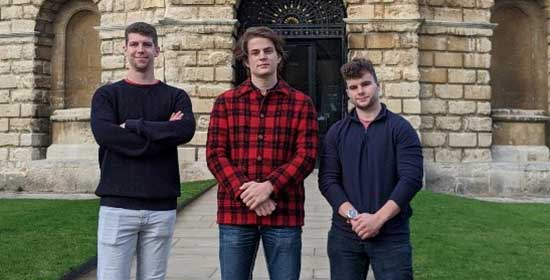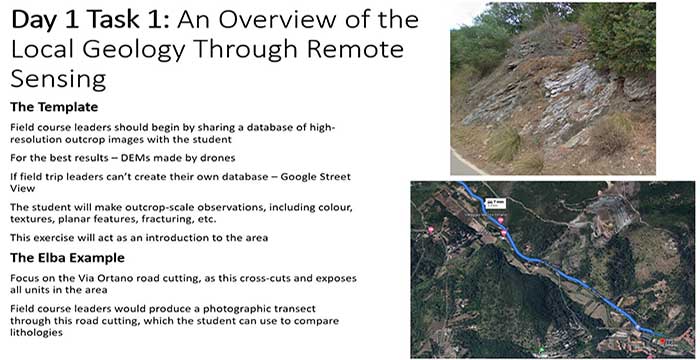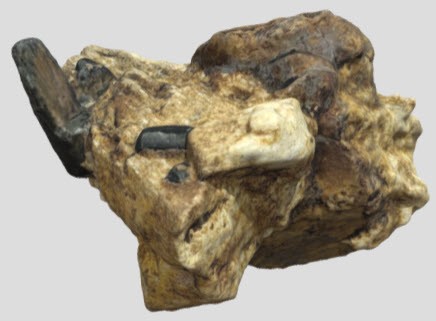- Group size: Three students prepared a winning entry to a European Digi EduHack Challenge
- Teaching mode: Competition proposal and presentation. Next steps are to investigate actually producing the proposed assets and packaging them into one or more bundles that field trip leaders could use in future to conduct virtual field trips in particular localities. Members of the team are enhancing their skills in drone flying, photogrammetry, 3D modelling and 3D scanning
- Division: MPLS
- Subject: Earth Sciences – Geology
- Tools: Sketchfab, Meshroom
Delivery
In 2020, three fourth-year students from Oxford’s Department of Earth Sciences participated in a 24-hour challenge hosted by the University of Miskolc in Hungary. After receiving their brief, each team had 24 hours to generate an idea, write a proposal and prepare a presentation describing their proposal.
The Oxford team decided to follow the format of a physical field trip, retaining the usual advance introduction by the leader on arrival at the geological outcrop, and a description by the leader of what there is to investigate. They planned the set of digital teaching materials used to reflect the scales usually considered during a field trip, namely the physical outcrop (1-100m), hand sample (1-20cm), small macroscopic scale (using a hand lens), and microscopy (usually conducted back at the field centre).
The Oxford team was declared the winners. They describe their solution as follows:
"This framework is intended to enable field trip leaders to take maximum advantage of modern technology to design virtual field trips to be nearly as engaging as actually being in the field, while being cheaper, safer, and easier to organise, particularly in difficult times like the present."

The Oxford team: Josh Evans, Iván Simon, Will McCreery (Department of Earth Sciences)
Overview of their solution
The Oxford team proposed the following solution to the idea of engaging field trip leaders to consider how to plan and prepare a content-rich digital field trip.
- A 3-day course template aimed at 2nd-year undergraduate students.
- Each day will consist of 5-6 hours of work.
- We will focus on the local lithologies and structural geology, and tie everything in with economic geology.
- The course content will be considered at a range of scales, from regional to thin-section (microscopy).
- Every part of the course will incorporate some software-based approach.
- Assessment will be ongoing throughout the course.
Strengths
- Only a crew of two or three have to travel to the site, instead of 30-40 every year. This radically reduces the environmental and local social footprint of the trip, as well as the number of boots wearing down the outcrops.
- The digital assets may be used year after year, unless field conditions change.
- Cost savings in terms of travel, accommodation and subsistence may be channelled into buying equipment and producing the assets, for example, drone photography, software for producing 3D models, 3D scanners etc.
- Lots of the world’s most interesting places are inaccessible, for example, Greenland, the Arctic, the Himalayas, so the resulting assets may be shared with many other people who normally would not have the opportunity to visit such places.
Challenges
- To successfully emulate geological field techniques in the virtual environment.
- To expose the new wave of geologists to modern technologies.
- To provide insights into quantitative approaches to geology and exploration.
- To cover a broad range of subjects in a limited time span.
- To make this virtual field course better than any in-person field course.

Extract from the Oxford team’s proposal

Example of a feldspar and tourmaline sample, created by Iván Simon using photogrammetry and 3D modelling on the Sketchfab platform